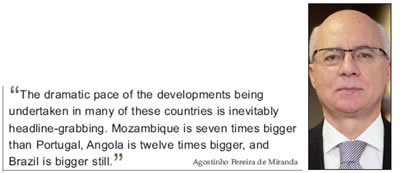Why the five million lawyers in the world need a single ethical code – Ramón Mullerat
The divergent ethical principles and obligations imposed on lawyers confuses clients, limits cross-border practice, and restricts the ‘normal’ provision of legal services
The world is globalised and human relationships are intensively interconnected, interrelated and interdependent. Businesses and corporations, through their transactions and spheres of influence – there are an estimated 70,000 transnational corporations with some 700,000 subsidiaries and millions of suppliers – impact every aspect of our lives.
Lawyers may not be the prototype of nomadism, but many now travel intensively following and mimicking their clients. The law and the legal profession are reactive. First comes the social or economic fact, and then follow the law and the lawyers regulating it. Christopher Columbus discovered America and then came the Laws on the Indies, not the other way around.
Alongside judges, lawyers are coministers of Justice and, due to their dedication to this fundamental public need are subject to strict legal and ethical principles and obligations – basically, independence, confidentiality and avoidance of conflicts of interest. As the US jurist Earl Warren said, “In civilised life, law flows in a sea of ethics.”
However, these principles vary manifestly in each jurisdiction and particularly between the common law and the civil law traditions. The concepts of attorney–client privilege, confidentiality and work product are comprised within the European civil law countries in a single solid tenet (secreto profesional). In the common law tradition, attorney–client privilege is considered to be owned and waivable by the client. In continental Europe the secreto profesional belongs to society and cannot be waived, however in-house counsel do not enjoy this privilege at all because of their purported lack of independence from the client (AM&S Case).
Finally, with regard to the duty of loyalty, screening (Chinese walls) of lawyers has been recently admitted by the American Bar Association (ABA) Model Rules, even if limited to cases of lawyers moving between firms. In the United Kingdom screening has been more generously accepted while in most other European countries more strict conflict rules prevail.
In the modern world where trade, investment, finance, tourism and crime operate in a seamless sphere, there is a need that the over five million lawyers around the globe also abide by the same basic rules.
The present international ethical structure as basically constituted by the Council of Bars and Law Societies of Europe (CCBE) Code of Conduct, the International Bar Association’s International Code of Ethics and the ABA Model Rules and a myriad of national and local codes is unsatisfactory. The existence of divergent ethical rules confuses clients, limits cross-border practice, exacerbates unnecessary competition and restricts the “normal” provision of legal services.
But a “global code of conduct” must however be more than a simple handful of aspirational ethical principles. It must be a code with rules of universal application, which resolve most ethical issues and supersede existing codes. This is no easy task.
In our unequal and diverse world, cultural differences are significant and laws divergent. Some legal fields may be more easy to harmonise (intellectual property, trade, arbitration, insolvency) than others (procedure, succession and family). Jurisdictional bars take on different responsibilities and many ethical principles are far from coincidental.
Likewise, different approaches are taken when drafting ethical guidelines: the short aspirational rules followed by the civil law traditions contrast with the more detailed approach of the common law. As an example, the regulation of conflicts of interests in the CCBE Code takes twelve lines, whilst the ABA Model Rules devote two hundred and fifty (even without the comments).
In practical terms, it is probably unrealistic to suggest the immediate adoption of a single, comprehensive and universal code. But such a task is necessary and feasible. It is a question of time and struggle. Perhaps first we should progressively try to agree basic universal principles to encourage the effort. In a second phase, these principles should be developed into more detailed rules.
The global village needs a single code that governs and unites all lawyers for the common benefit of the legal profession but, above all, the benefit of the public interest and the society we serve. I may not see it completed but it will happen. “Se hace camino al andar” (the way is made by walking) as the leading Spanish writer Antonio Machado said.












